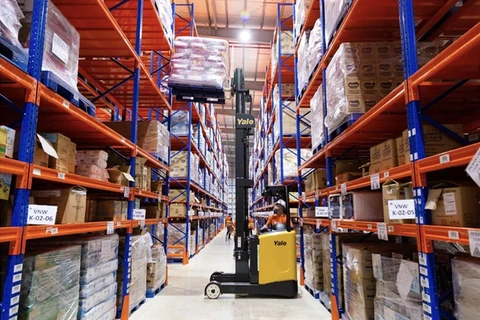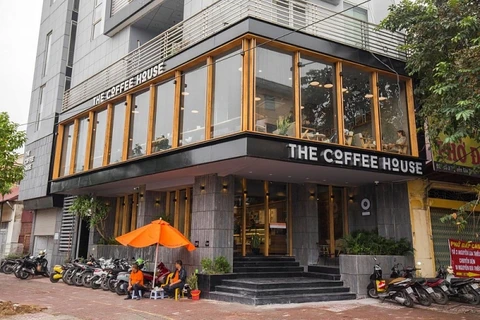 A woman shops online via her smartphone. E-commerce is expected to boom in Vietnam in the next few years.(Photo: VNA)
A woman shops online via her smartphone. E-commerce is expected to boom in Vietnam in the next few years.(Photo: VNA) Online shopping has become increasingly popular in Vietnam in recent years and trade fraud in e-commerce and social networks has also increased, Tran Huu Linh, Director of the Vietnam Directorate of Market Surveillance, said.
2020 saw the rapid development of e-commerce in the context of the COVID-19 pandemic, as warehouses could be located everywhere while delivery services and online payment made the circulation of goods faster than ever, Linh said, adding that this was causing difficulties in the fight against smuggling and trade fraud.
Linh said that the task force in charge of fighting smuggled and counterfeit products in e-commerce was established early last year.
He forecast that trade fraud on e-commerce platforms would account for about 50-60 per cent of all trade fraud in the next three years.
The legal framework must be adjusted to better manage the operation of e-commerce and prevent trade fraud, Linh stressed.
A decree to replace Decree 52/2013/NĐ-CP about e-commerce which the ministry proposed to the Government late last year and expects to be issued this year would provide important changes to the environment for the development of e-commerce, he said.
Linh said the new decree would create a fair playground for e-commerce and traditional trade with regulations to regulate the responsibilities of e-commerce platform operators.
Relevant services such as e-payment, e-wallet and shipping – factors that contributed to the boom of e-commerce – should also be regulated, he said.
According to the Ministry of Industry and Trade, it is critical to improve the legal framework for e-commerce.
Under the ministry’s proposal, product information on e-commerce platforms must be transparent to prevent trade fraud. In addition, there is a need for solutions to encourage the rating of e-commerce websites to increase trust.
The Vietnam e-Commerce and Digital Economy Agency plans to implement the GoOnline programme this year to support enterprises to put their business on e-commerce platforms.
The agency aims to develop a healthy online market in Vietnam, consolidate the trust of consumers and help businesses create a breakthrough for e-commerce development.
Under the Government’s master plan of e-commerce development in 2021-25, one focus is to develop e-commerce to make Vietnam among the three leading countries in ASEAN in terms of e-commerce development.
E-commerce expanded at 18 percent to reach 11.8 billion USD last year, making Vietnam the only country in ASEAN to see two-digit growth in e-commerce.
The percentage of e-commerce revenue in total retail sales increased from 3.6 percent in 2018 to 4.2 percent in 2019 and 5.5 percent in 2020.
A report from Google and Temasek found that Vietnam’s e-commerce market would reach 43 billion USD by 2025 to rank third in ASEAN./.
VNA























